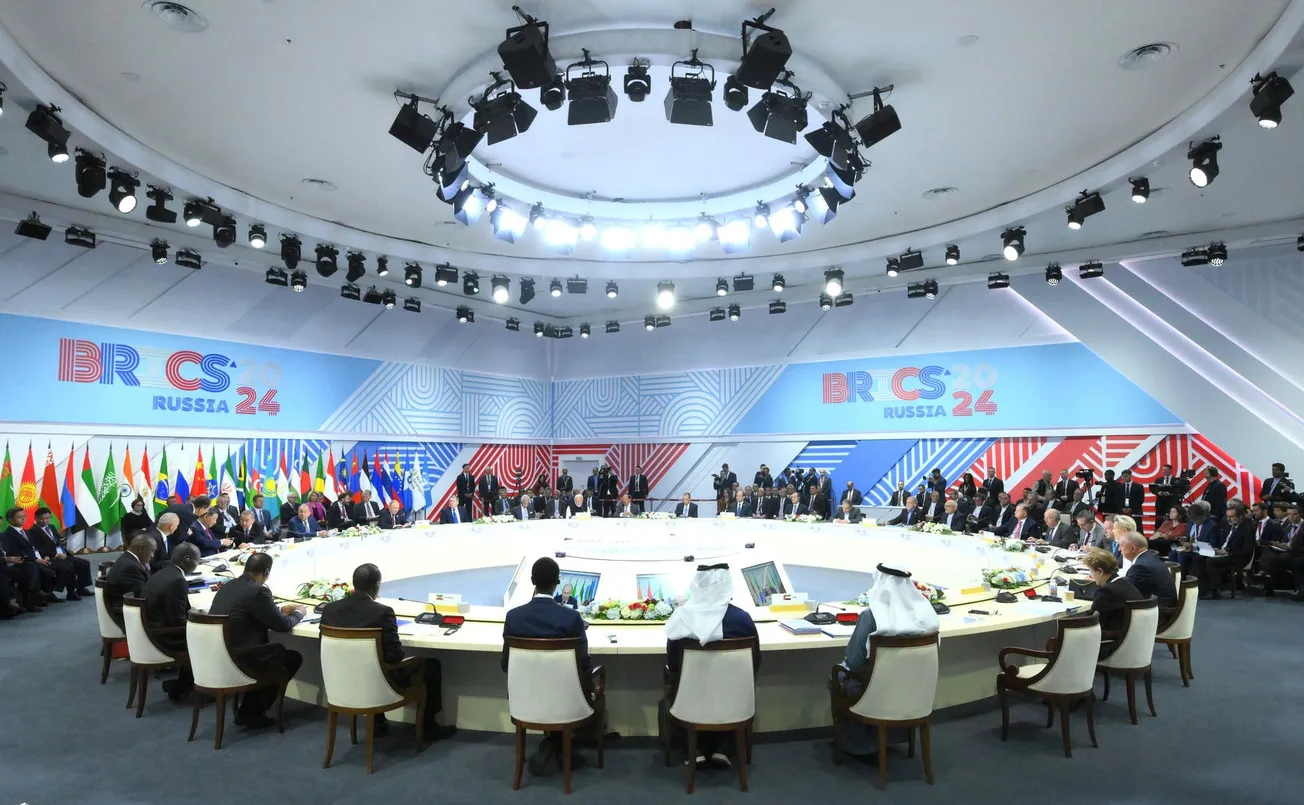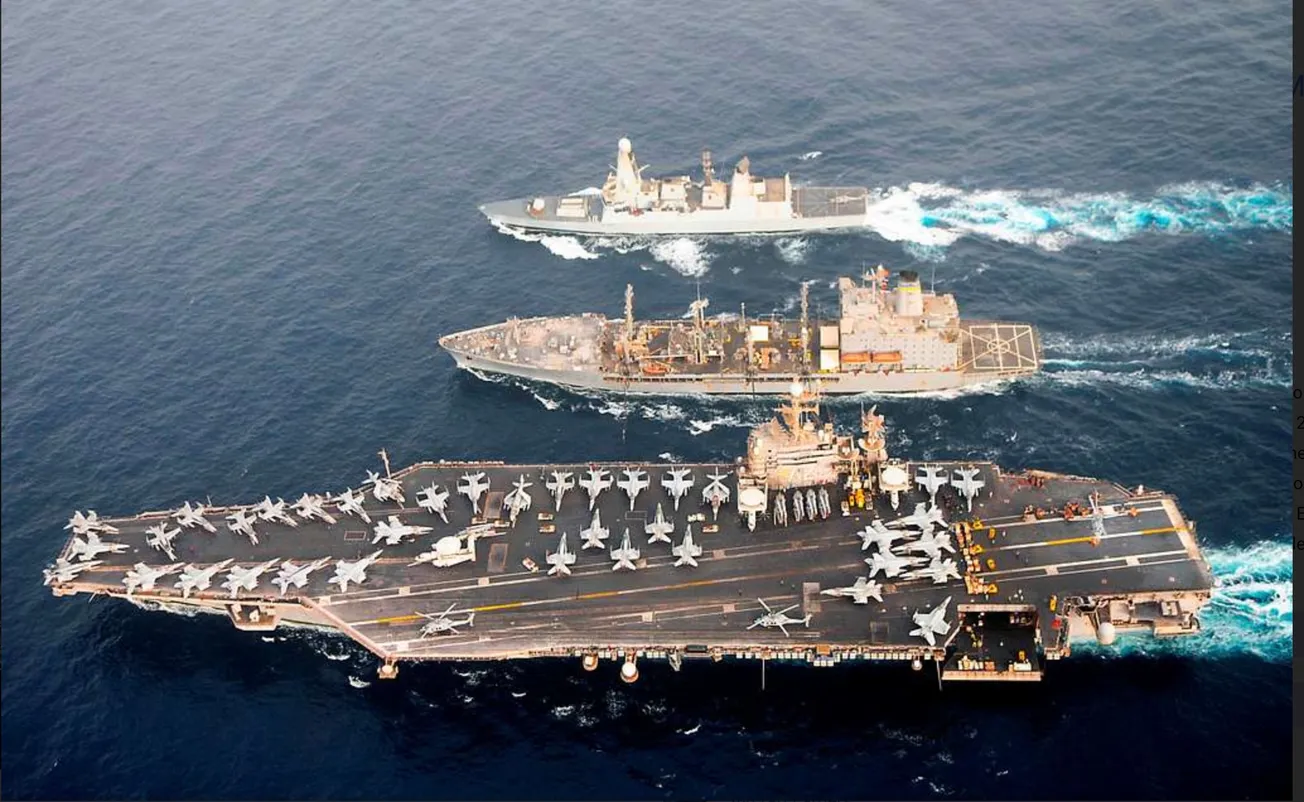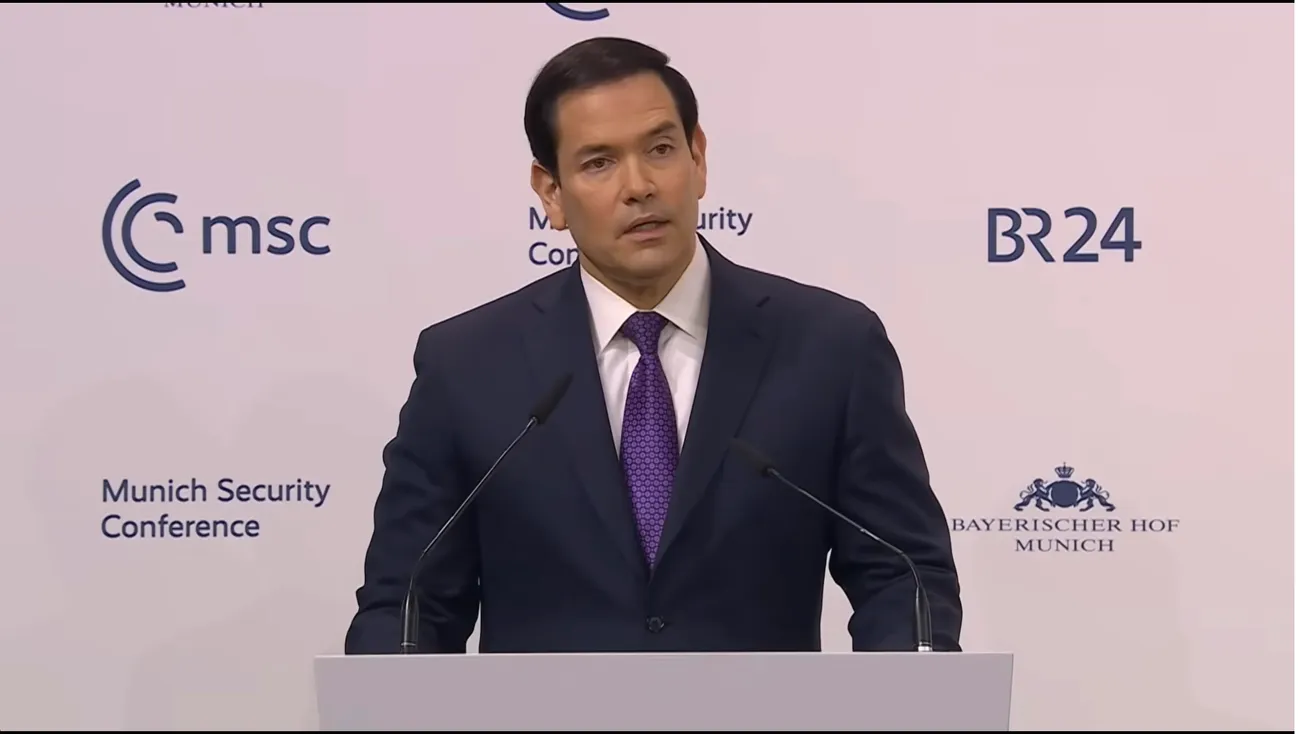Today was the second of three days of the Oct. 22-24 BRICS Summit in Kazan, Russia. The agenda saw heads of state and government of the nine member nations meet privately in Restricted Access mode, then in expanded format. The Summit released a Declaration, “Strengthening Multilateralism for Just Global Development and Security,” and on the sidelines, dozens of meetings are taking place, including among the 15 other heads of state and government in attendance, as well as among the 36 foreign delegations present this week.
This day and this Summit mark an historic moment. Speaking of the BRICS, “We have assumed responsibility for the future of the world, not only in word, but in deed,” is the way Russian President Vladimir Putin expressed it in his opening statement, given as a head of state, apart from his role as moderator for the roundtable, at which the leaders spoke from the other eight BRICS member nations (China, India, South Africa, Brazil, Iran, U.A.E., Egypt and Ethiopia). Putin said, “The BRICS states possess truly immense potential in terms of political power, economy, science, technology, as well as human development. Furthermore, we are united by shared values and a common worldview.”
The truth of this declaration is manifest in the content, commitment, and dynamic of the BRICS “process” seen in the Summit, and in deliberations between Summits. One outstanding reflection of the BRICS dynamic today was the meeting between Indian Prime Minister Narendra Modi and Chinese President Xi Jinping, their first direct meeting in five years. The photo of their handshake has become an emblem of the Summit.
The current BRICS member nations—not counting the many waiting in line—account for nearly half the world’s population, and a third of global economic activity, even by the inadequate metric of GDP.
However, what accounts for the BRICS authority is not even the large scale of “representation” as such, but the BRICS member nations’ shared respect for the principle of doing good for humanity. In practice, this means bringing to end the lingering colonialist, weaponized Western financial/economic system, and building a new framework for domestic and international relations in all respects—economic, social, cultural, and civilizational.
Chinese President Xi Jinping, speaking at one of the Kazan meetings Oct. 22, referred to the role of BRICS in this process, as serving as a “system-forcing process” for a new, nation-serving economic, social and security architecture for the world.
Leaders of other nations at today’s Roundtable and other meetings have had very strong statements about all aspects of the BRICS process, frequently termed “transformative.” Brazilian President Lula da Silva, for example, said, “Now is the time to move forward in creating alternative means of payment for transactions between our countries. It’s not a question of replacing our currencies. But we must work to ensure that the multipolar order we are aiming for is reflected in the international financial system. This discussion needs to be tackled with seriousness, caution and technical soundness, but it can no longer be postponed.” (He spoke via video from Brazil, as he was recovering from a fall and unable to travel.)
South African President Cyril Ramaphosa said that we are working “toward a mutual, shared, and equitable prosperity for all,” and he looked forward to the report to the BRICS on measures for the use of local currencies. Further, he said in particular that “climate considerations will not stifle development aspirations of the Global South.”
The report to the Summit on activities of the New Development Bank, the BRICS bank set up in 2015, given by the Bank’s President Dilma Rousseff, was met with extensive discussion and interest. It was one of four special reports to the Summit. Rousseff said, “There are enormous unmet needs in development financing. Expanding the role of the New Development Bank is an essential condition for addressing this need.”
It is notable that throughout discussions of how to finance trade, productive investment, and conduct currency exchange, were reports on concrete development projects. Three examples, of many:
• The International North-South Transport Corridor—going from Russia through the Caspian Basin across Iran, to its port of Chabahar on the Arabian Sea—was discussed by Iran President Masoud Pezeshkian and India’s Prime Minister Narendra Modi. They both stressed this corridor’s benefit to Afghanistan in particular, and all of Central Asia.
• A new BRICS world grain exchange is proposed by President Putin. He described it today. The BRICS Summit Declaration states (Point 73) that the concept is, “to establish a grain (commodities) trading platform within BRICS (the BRICS Grain Exchange) and to subsequently develop it including expanding it to other agricultural sectors.”
• The El-Dabaa Nuclear Power Plant project was raised by Egyptian President Abdel Fattah El-Sisi at the Summit. It is now under construction on the Mediterranean coast.
These kinds of nation-serving development projects, and the positive multinational relations involved, are exactly what the collective West is targeting for prevention and destruction. Global NATO, with the U.S. and U.K. in the lead, are literally targeting BRICS nations, as seen in their backing warfare against Russia and Iran, belligerence against China and others, and subversion at large.
Among the latest updates, in the two fronts of extreme danger of escalation to nuclear war, are that, today, Germany and the U.K. signed a new military deal to increase mutual use of their military assets. This follows on the ceremonial opening Oct. 21 of the new NATO Commander Task Force Baltic, in the port of Rostock, in former East Germany. Today, Russian Defense Minister Andrey Belousov was in Minsk, Belarus, meeting with defense authorities there, to confirm increased mutual Russian-Belarus defense commitments in the face of the increasing NATO pressure.
In Southwest Asia, U.S. Secretary of State Antony Blinken is personally on the scene in the region, for the 11th visit since Oct. 7, 2023, embodying the U.S. “license to kill” approval of Israel’s genocide against Palestinians and others. Israel, in the last 48 hours, has hit southern Lebanon hard, including the historic city of Tyre, and also continues pounding Gaza. It is reported that Blinken, in Riyadh today, was trying to pressure Saudi Arabia to “normalize” relations with Israel!
In Kazan, BRICS leaders conferred and spoke out on the need to stop this aggression, death and escalation of warfare. Many leaders point to the peace proposal for negotiations over Ukraine, proposed by China and Brazil in May. Likewise, leaders urged for an end to the Israeli warfare in Southwest Asia.
The time is now for citizens everywhere—especially in the United States, where stopping the war madness is the only “election issue”—to take full responsibility for the future of the world, and advance the way of the BRICS. The immediate opportunity is to participate in the Oct. 26 international event, based in New York City, “Build a Peace Chorus Against the Ghouls of War”.






